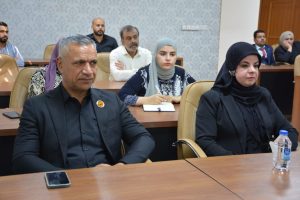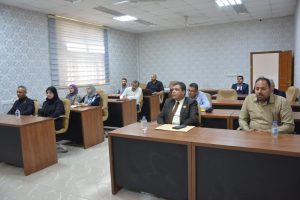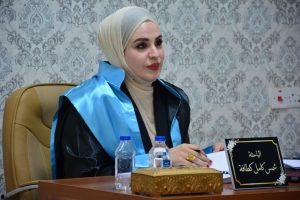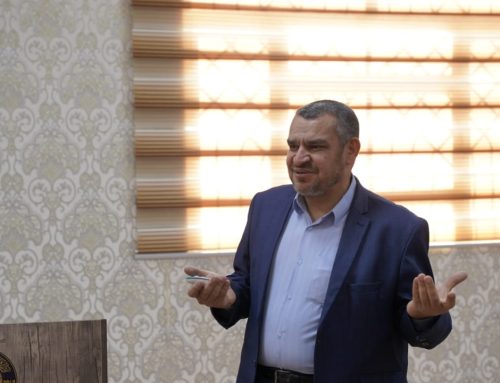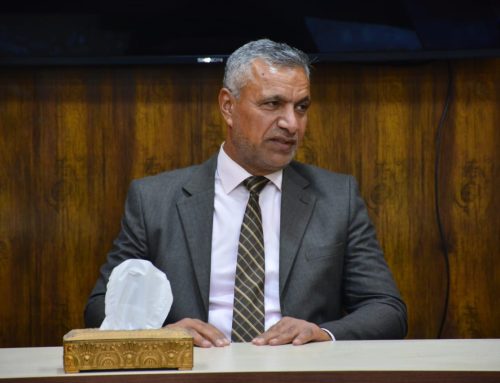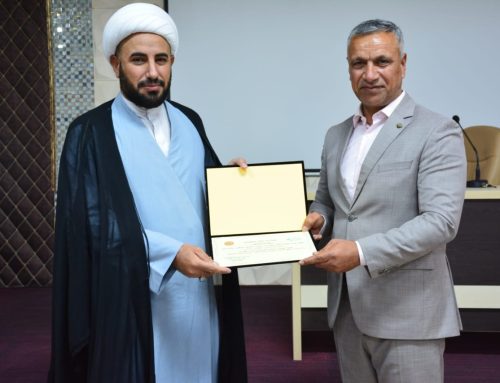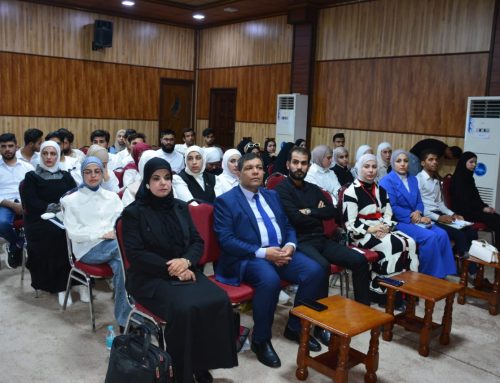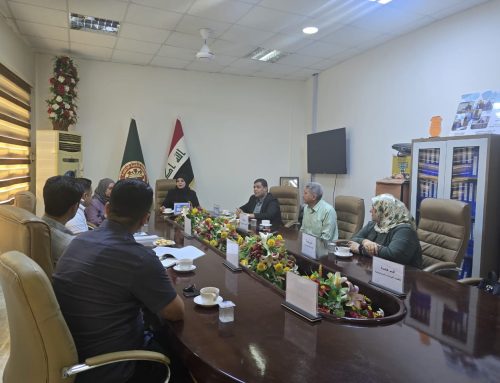Basra Engineering Technical College, a constituent of the Southern Technical University, conducted a master’s thesis concerning the performance of a hybrid flat-plate solar collector utilizing both water and air with different air flow rates. The thesis was presented by graduate student Shams Kamel Katafa from the Department of Mechanical Thermal Engineering Techniques . The session was presided over by the President of the Southern Technical University, Professor Dr. Adnan Abdullah Atiq, and the Dean of the College, Assistant Professor Dr. Layla balasem hashem.
The examination committee was comprised of the following members:
– Professor Dr. Saadoun Fahd Dakhel / Southern Technical University, Basra Engineering Technical College / Chair
– Professor Dr. Mohammed Abdul Wahab Abdul Wahid / Southern Technical University, Basra Engineering Technical College / Member
– Assistant Professor Dr. Imad Abdullah Khazal / University of Basra, College of Engineering / Member
– Professor Dr. Mahmoud Aziz Mohammed / Southern Technical University, Maysan Engineering Technical College / Member and Supervisor
The study concluded that employing water as a working fluid in solar collectors encounters challenges due to the high specific heat capacity of water, which leads to reduced heating rates and increased thermal losses in flat-plate solar collectors.
The objective of the research was to optimize the utilization of solar energy through the integration of a solar water heater and a solar air heater. This hybrid approach enables the absorber plate to capture heat both directly from solar radiation and indirectly from the air flowing through the channels connected to the air heater.
The summary of the study indicated that the simulation results were in close agreement with the experimental data, affirming the reliability of the model. The digital efficiency showed optimal performance at an air velocity of 1.7 m/s. The numerically obtained heat gain was 1,462.814 watts at this air velocity, with thermal losses consistent with the experimental results.
Following a rigorous scientific discussion, the researcher was awarded an “Excellent” grade.
